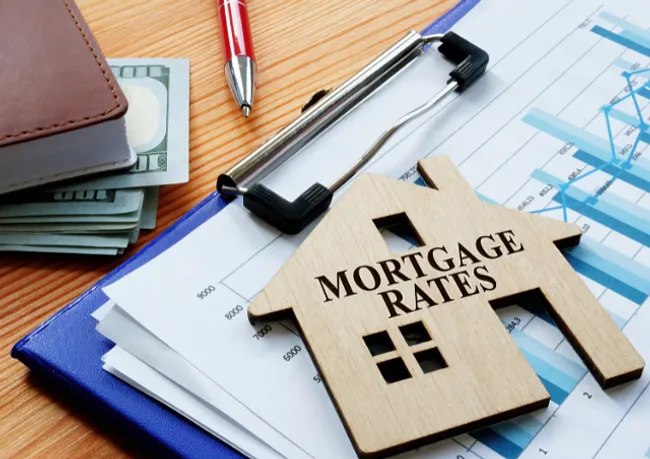Always up to date to find your dream job!
We only need a few personal details, thanks!
When purchasing property in the Netherlands, mortgage interest rates significantly impact the total cost of your home loan over time. Understanding what influences these rates helps secure favorable mortgage terms.
Global Economic Influences: Mortgage interest rates in the Netherlands are shaped by global and local economic conditions, including changes in ECB (European Central Bank) rates, inflation, and overall economic stability. Observing these trends can help predict potential rate changes.
Local Housing Market Dynamics: The Dutch housing market significantly influences mortgage rates. High demand and limited supply can lead to higher rates, so it’s wise to monitor local market trends.
Fixed Rate Mortgages: A fixed-rate mortgage maintains a consistent interest rate throughout a specified period, ensuring predictable monthly payments and financial stability.
Variable Rate Mortgages: Variable-rate mortgages feature fluctuating interest rates based on market conditions. Initially lower, these rates may increase over time.
Your choice depends on your financial circumstances and comfort with risk. Fixed rates offer stability, while variable rates could benefit you during periods of low interest. Discussing your situation with a mortgage adviser can be helpful.
The fixed interest period specifically applies to fixed-rate mortgages, during which your interest rate remains unchanged. Common periods range from 5 to 20 years. Selecting the right duration can protect you from rate increases, avoiding the complexity and potential cost of refinancing later.
Shorter-term mortgages usually have lower interest rates but higher monthly payments, reducing overall interest. Longer-term mortgages often feature higher interest rates with lower monthly payments but greater total interest costs.
Rates and terms can vary significantly between mortgage lenders. Mortgage terms such as interest rates, arrangement fees, prepayment penalties, and loan duration can often be negotiated. A good credit profile and stable income enhance your position.
Historical Perspective: Mortgage rates in the Netherlands historically fluctuate based on broader economic conditions. Understanding these trends supports informed long-term financial planning.
Current Market Outlook: ECB policies, housing supply issues, and global economic events currently shape mortgage rates in the Netherlands. Staying updated on these factors can help anticipate rate movements.
Major Providers: Banks like ABN AMRO, Rabobank, and ING, alongside specialized mortgage advisers, offer tailored products often suited for expats, providing flexible repayment options and personalized services for those unfamiliar with the Dutch market.
Choosing the Right Lender: Evaluate lenders based on customer service, flexibility, reputation, and experience with expats. A specialized mortgage adviser familiar with international clients can simplify your experience. Consider factors such as availability of services in your preferred language, ease of communication, transparency regarding fees, and responsiveness to your questions. Carefully review terms and clarify all details before finalizing an agreement.
Long-Term Commitment: A mortgage significantly impacts your finances for years. Ensure monthly payments and interest rates are comfortably manageable, considering both current and future financial scenarios.
Building Equity: Regular mortgage repayments increase your home equity. A favorable interest rate accelerates equity growth, enhanced further by property maintenance and improvements.
Required Documentation: Applying for a Dutch mortgage typically involves providing proof of income, credit history, and identification. Non-Dutch documents may require official translations, potentially incurring additional costs and delays. Always check in advance with your lender to confirm whether non-Dutch documents are accepted or if translations must be provided. Keep in mind that official translations can involve additional costs and processing time.
Pre-Approval: Formal pre-approval is uncommon in the Netherlands, but some lenders offer pre-qualification letters to clarify borrowing capacity and strengthen negotiations with sellers.
Calculating Monthly Payments: Use online mortgage calculators (see Helpful Tools and Resources below) to estimate monthly payments, including principal, interest, taxes, and insurance.
Budgeting for Rate Changes: If choosing a variable-rate mortgage, budget proactively for potential rate increases. Maintain a financial buffer for unexpected payment adjustments.
Start by gathering your financial documents, setting your budget, and deciding on your preferred mortgage type. Compare various lenders’ offers to identify the best terms. After selecting a lender, obtaining a pre-qualification letter can strengthen your negotiating position with sellers. Every home-buying journey is unique, so consulting experts can be beneficial. We provide a list of trusted partners specializing in assisting internationals with Dutch mortgages. Check out our housing experts and other expat community organizations.
Overlooking Additional Costs: Homeownership includes expenses beyond the mortgage, like property taxes, maintenance, and insurance. Include all these expenses in your monthly budget calculations to avoid financial strain.
Skipping the Fine Print: Carefully review your mortgage terms to avoid unexpected fees or unfavorable clauses. If the contract isn't in your preferred language, request an official translation or seek help from someone proficient in both languages.
Mortgage Calculators: Use Dutch mortgage calculators, often provided by lenders and advisors, to estimate potential monthly payments. Results may vary slightly, so try multiple tools for accuracy.
Financial Advisors: Professional advisors offer personalized mortgage recommendations tailored to your financial situation. Always verify their credibility before sharing personal information.
Dutch Mortgage Interest Rate Trends: Keeping an eye on economic indicators like inflation, employment rates, and overall economic growth helps you better understand Dutch mortgage interest rate trends. Staying updated allows you to anticipate changes and plan accordingly.
Understanding mortgage interest rates in the Netherlands can help you confidently navigate your home-buying journey. By regularly staying informed, thoughtfully comparing offers, and carefully weighing your options, you’ll be well-equipped to choose the best possible mortgage aligned with your financial goals.

We only need a few personal details, thanks!
